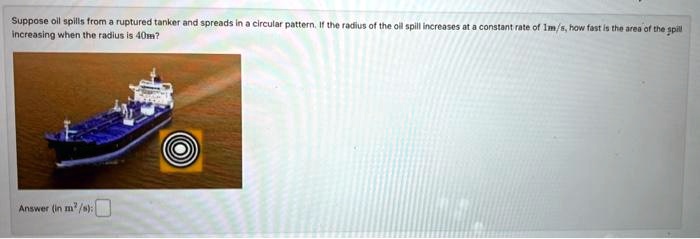Suppose oil spills from a ruptured tanker: an environmental, economic, and legal catastrophe. Oil spills pose significant threats to marine ecosystems, coastal communities, and the global economy. This comprehensive analysis delves into the potential damage, containment and cleanup challenges, financial implications, prevention measures, legal frameworks, and future trends associated with oil spills, providing a thorough understanding of this critical issue.
Environmental Impact

Oil spills can have devastating environmental consequences, impacting marine ecosystems, coastal communities, and economies.
Damage to Marine Ecosystems
- Oil can coat and suffocate marine life, including fish, seabirds, and mammals.
- Oil can contaminate food chains, affecting the entire ecosystem.
- Oil can damage coral reefs, seagrass beds, and other sensitive habitats.
Effects on Coastal Communities
- Oil spills can contaminate beaches, making them unsafe for swimming and other recreational activities.
- Oil spills can damage fishing grounds, impacting local economies that rely on fishing.
- Oil spills can disrupt tourism, a major economic driver for many coastal communities.
Examples of Previous Oil Spills
- Exxon Valdez oil spill (1989): 11 million gallons of oil spilled, killing thousands of marine animals and devastating the Alaskan coastline.
- Deepwater Horizon oil spill (2010): 4.9 million barrels of oil spilled, causing widespread environmental damage in the Gulf of Mexico.
- Amoco Cadiz oil spill (1978): 63 million gallons of oil spilled, polluting the coast of France and killing thousands of seabirds.
Oil Spill Containment and Cleanup

Containing and cleaning up oil spills is a complex and challenging task.
Methods of Oil Spill Cleanup
- Booms: Floating barriers used to contain oil spills and prevent them from spreading.
- Skimmers: Devices that remove oil from the water’s surface.
- Dispersants: Chemicals that break up oil slicks, making them easier to clean up.
Challenges and Limitations, Suppose oil spills from a ruptured tanker
- Weather conditions, such as wind and waves, can make cleanup efforts difficult.
- Oil can spread rapidly, making it hard to contain and recover.
- Cleanup methods can be harmful to marine life, especially dispersants.
Case Studies
- Exxon Valdez oil spill: Successful cleanup efforts removed approximately 10% of the spilled oil.
- Deepwater Horizon oil spill: Despite extensive cleanup efforts, only a small portion of the spilled oil was recovered.
Popular Questions: Suppose Oil Spills From A Ruptured Tanker
What are the primary causes of oil spills from tankers?
Tanker accidents, equipment failures, human error, and natural disasters are common causes of oil spills.
How can oil spills impact marine ecosystems?
Oil spills can harm marine life, damage habitats, disrupt food chains, and contaminate seafood.
What are the challenges in cleaning up oil spills?
Weather conditions, oil type, and the location of the spill can make cleanup efforts difficult and time-consuming.
What international conventions govern oil spill prevention and response?
The International Convention for the Prevention of Pollution from Ships (MARPOL) and the International Oil Pollution Compensation Funds (IOPC Funds) are key conventions.
